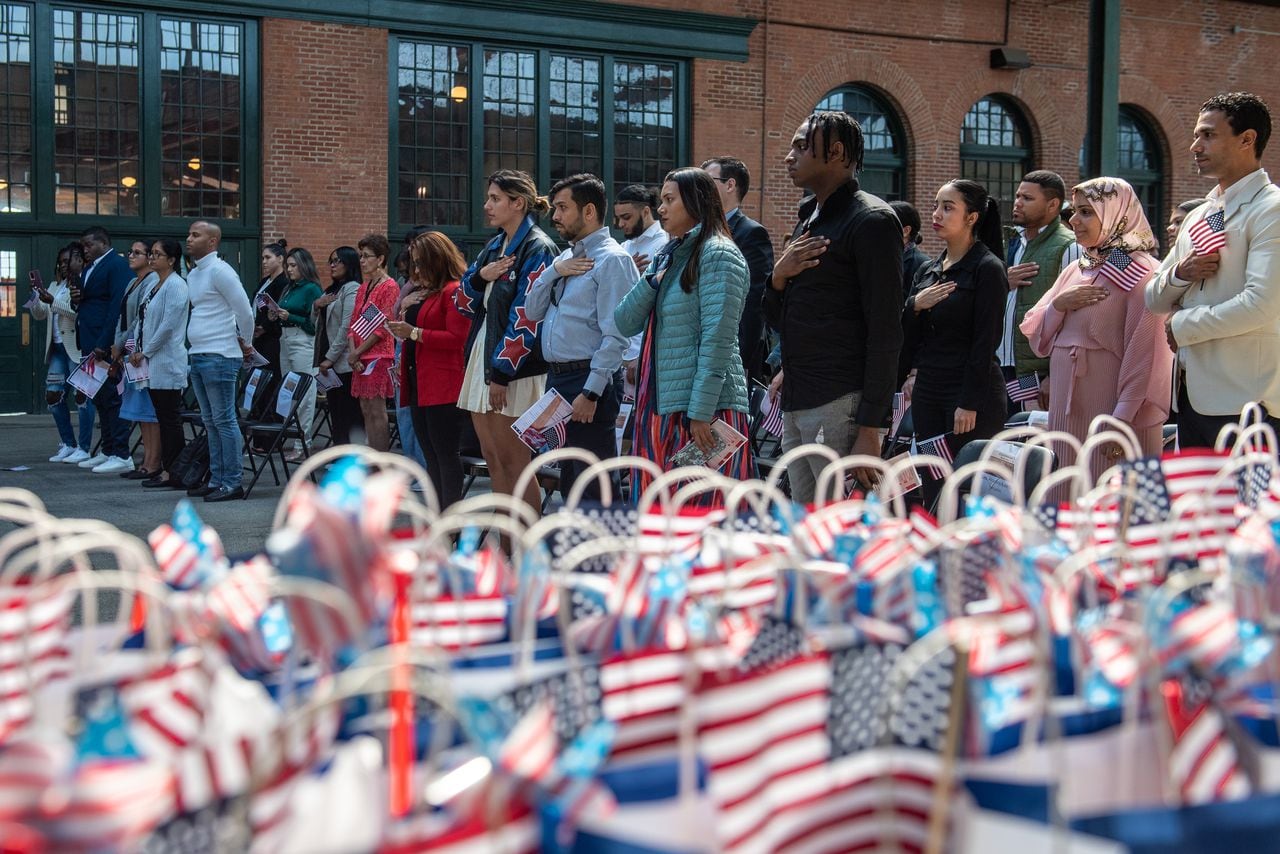U.S. citizenship applications fees will increase for the first time in 8 years
Several immigrant filing fees are slated to rise in the next few weeks to offset operating costs, according to the U.S. Citizenship and Immigration Services (USCIS), but migrant advocates say the new steep charges will prevent family reunification and place more burden on employers hiring noncitizens.
The USCIS published a final rule in late January that will increase the cost of legal forms to request status adjustments and employment, and family-based immigration and naturalization benefits. Premium fees will go in effect late February, with other costs increasing in April.
“This will put some immigrant families in a difficult position. Larger families may have to decide to pay for the applications of certain family members before others because they can’t afford to pay them all at once,” said Adriel Orozco, the senior policy counsel at Immigration Impact, a project of the American Immigration Council.
The agency, which is part of the Department of Homeland Security, is mostly funded by user fees. Immigrant advocates have advised people to submit requests as soon as possible to avoid increased costs, which some said could discourage immigration to the U.S., could harm immigrant communities, and encourage dangerous illegal migration.
“This is largely because Congress has failed to provide sustainable funding to USCIS to help process the agency’s growing humanitarian caseload,” Orozco said.
Several green card petitions will become more expensive, including form I-130 for noncitizen relatives, which will increase more than 25 percent to $675. Employers would be subjected to a $600 “asylum program fee” for forms I-129 — a petition to temporarily hire nonimmigrants — and I-140, a petition for migrants to gain employment and start on the path to residency. The fee is exempted for nonprofits and is halved for smaller organizations.
Employment authorization and advance parole, two forms that were previously free, will now cost $260 and $630, according to the organization Boundless Immigration. People who file online are eligible for a $50 discount.
The fee adjustments follow a regulation that will increase premium processing fees beginning Feb. 26 In what the agency claims is in response to high inflation rates last year. The last time application costs were reviewed was in 2016. USCIS said “a comprehensive biennial fee review” determined that it was not recovering the full cost of providing its services.
“Going forward, we will require continued congressional support to eliminate our current backlogs, and our intention is that the new fee rule will allow us to keep pace with incoming inventories and avoid future backlogs,” the agency said on the FAQ page for the proposed rule.
Business for USCIS decreased during the height of the COVID-19 pandemic, dropping revenue by 40 percent. A hiring freeze as caseloads rebounded caused the USCIS to develop a backlog. Officials said the current fees brought in an average of $3.28 billion last year and in 2022, and the new rules would generate an additional $1.9 billion each year.
“This is the amount necessary to match agency capacity with projected workloads, so that backlogs do not accumulate in the future,” the agency said.
About 878,500 people were naturalized by USCIS last year, making up nearly a quarter of all naturalizations in the past decade, according to the agency’s statistics. The agency said it broke its own records, completing more than 10 million pending cases in 2023.
USCIS has called on Congress to provide the agency with supplemental funds to cover projected shortfalls.
